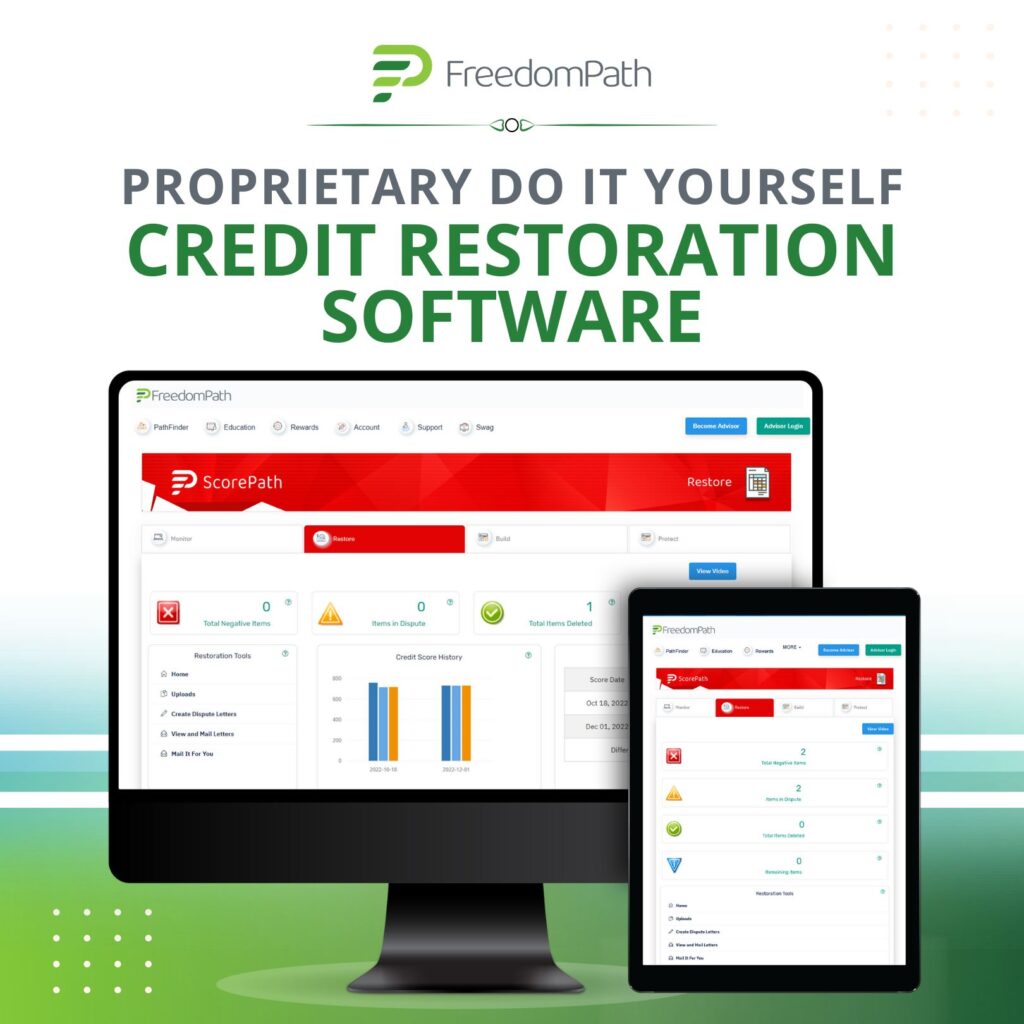Have you ever wondered why your neighbor pays less for auto insurance than you do, even though you have similar cars and driving records? Or why your home insurance premium seems to be climbing year after year?
The answer to these mysteries might just be hiding in your credit score.
Yes, you read that correctly.
Your credit score, that three-digit number that reflects your financial responsibility, can play a significant role in determining your insurance rates.
In this article, we’re diving deep into the world of credit and insurance, exploring the impact of your credit score on your premiums, and sharing strategies to help you get the best insurance rates possible.
The Surprising Link Between Credit and Insurance
You may wonder, “What does my credit score have to do with my insurance premiums?”
Well, it turns out that insurance companies believe there’s a connection between your financial responsibility and your likelihood of filing a claim.
They argue that individuals with better credit scores are more responsible and less likely to file insurance claims.
But how does this work in practice? Let’s break it down.
Types of Insurance That Use Credit Scores
Before we dive into the intricacies of how credit scores affect insurance rates, let’s understand which types of insurance commonly consider your credit score during the quoting process:
- Auto Insurance: Car insurance companies are among the most common users of credit scores when determining rates. They typically use a credit-based insurance score, a modified version of your credit score, to assess the risk of insuring you.
- Homeowners Insurance: Like auto insurers, homeowners insurance providers use credit-based insurance scores to assess risk. If you’re a homeowner or planning to become one, your credit score may significantly affect your home insurance rates.
- Renters Insurance: Even if you don’t own a home, your credit score can influence your renters insurance rates. Insurance companies consider credit scores to gauge your likelihood of filing a claim for stolen property or damage to the rental unit.
- Life Insurance: Some life insurance companies may review your credit history as part of the underwriting process, particularly if you’re applying for a substantial policy. While credit is not the primary factor, it can still have an impact on your premiums.
- Health Insurance: Credit scores usually don’t affect your health insurance premiums directly, but your ability to afford health insurance might be influenced by your financial stability, which your credit score reflects.
How Your Credit Score Impacts Your Insurance Rates
Now that we’ve established which types of insurance use credit scores let’s explore how your credit score affects your insurance premiums.
Understanding this connection is essential for getting the best insurance rates possible.
1. Auto Insurance
Auto insurance premiums can vary significantly based on your credit score. You will likely enjoy the lowest auto insurance rates if you have an excellent credit score (usually 800 or above).
On the other hand, if your credit score is poor (below 600), you might find yourself facing steep premiums.
Consider this example:
Two drivers with identical cars, ages, and driving histories, except for their credit scores.
Driver A has an excellent credit score, while Driver B has a poor credit score. Driver A might pay significantly less for the same coverage simply because they have demonstrated financial responsibility.
Strategies and Solutions for Lower Auto Insurance Rates:
- Improve Your Credit: Review your credit report for errors and improve your credit score. Pay bills on time, reduce outstanding debts, and manage credit responsibly.
- Shop Around: Different insurance companies weigh credit scores uniquely. It pays to shop around and compare quotes from multiple insurers. You might find a company that is more lenient toward lower credit scores.
- Maintain Continuous Coverage: Having a history of continuous auto insurance coverage can also help mitigate the impact of a lower credit score. Insurance companies like to see that you’ve been insured without any lapses.
2. Homeowners and Renters Insurance
When it comes to homeowners and renters insurance, a better credit score can lead to lower premiums.
Insurers believe that individuals with higher credit scores are more likely to take good care of their homes or rental properties and file fewer claims.
Strategies and Solutions for Lower Homeowners and Renters Insurance Rates:
- Improve Your Credit: Like auto insurance, your primary strategy should be improving your credit score. This can have a significant impact on your home insurance premiums over time.
- Raise Your Deductible: Increasing your deductible (the amount you pay out of pocket before insurance kicks in) can lower your premiums. Just make sure you have enough savings to cover the deductible in case of a claim.
- Bundle Your Policies: Many insurers offer discounts if you bundle your homeowners or renters insurance with other policies, such as auto insurance. This can result in savings on both policies.
3. Life Insurance
Life insurance companies might consider your credit history in some instances. A less-than-stellar credit history could result in higher premiums. Still, the effect is generally more negligible compared to other types of insurance.
Strategies and Solutions for Lower Life Insurance Rates
- Improve Your Health: A healthier lifestyle often leads to better life insurance rates. Maintain a healthy weight, exercise regularly, and avoid smoking to reduce your premiums.
- Shop Different Types: Term life insurance policies are usually more affordable than whole life insurance. Consider your needs and budget when choosing a policy.
4. Health Insurance
While your credit score doesn’t directly affect health insurance premiums, your ability to afford health insurance and cover medical expenses can be influenced by your financial stability, which is reflected in your credit score.
Strategies and Solutions for Affordable Health Insurance
- Health Savings Account (HSA): If you have a high-deductible health plan, consider opening an HSA to save money for medical expenses. Contributions to an HSA are often tax-deductible.
- Subsidies and Exchanges: Depending on your income, you might qualify for subsidies through the Health Insurance Marketplace. Explore your options there to find a suitable plan.
5. Business Insurance
For business owners, your credit score can significantly impact the cost of business insurance, including general liability insurance, commercial property insurance, and professional liability insurance.
Insurance companies assess your credit score as a measure of your business’s financial stability and reliability. A lower credit score might lead to higher premiums, which can be burdensome for small businesses.
Strategies and Solutions for Lower Business Insurance Rates
- Separate Personal and Business Finances: Maintaining distinct financial accounts for your business and personal life can help protect your personal credit score. It’s essential to demonstrate that your business is financially stable, even if your personal credit isn’t perfect.
- Business Improvements: Invest in your business’s safety and security measures. Installing security systems, fire prevention tools, and risk management programs can demonstrate your commitment to mitigating potential claims.
- Regularly Review and Update Policies: As your business evolves, it’s essential to update your insurance policies accordingly. This ensures you’re not overinsured or underinsured, which can save you money in the long run.
6. Motorcycle and Recreational Vehicle Insurance
Your credit score can influence auto, motorcycle, and recreational vehicle (RV) insurance premiums. Insurers similarly assess these policies, looking at your credit-based insurance score as an indicator of risk.
Strategies and Solutions for Lower Motorcycle and RV Insurance Rates
- Join an Affiliation or Club: Some insurance companies offer discounts to members of specific motorcycle or RV clubs. Check if you’re eligible for such discounts to reduce your premiums.
- Advanced Rider/RV Safety Courses: Completing advanced rider or RV safety courses can make you a safer operator and earn you discounts on your insurance.
- Garaging Your Motorcycle/RV: Storing your motorcycle or RV in a secure, enclosed location can lead to lower premiums. This indicates to insurers that your vehicle is less likely to be stolen or damaged.
7. Pet Insurance
Pet insurance may not be the first type of coverage that comes to mind when you think about the impact of your credit score.
Still, some pet insurance providers do consider credit history. They use it as an indicator of an applicant’s financial stability and responsibility.
Strategies and Solutions for Affordable Pet Insurance:
- Comparison Shopping: Like with any other insurance, shopping around is essential for pet insurance. Look for policies offering coverage your pet needs at a reasonable cost.
- Manage Your Pet’s Health: Regular veterinary care and preventive measures can help reduce the likelihood of high vet bills. This can result in lower premiums or a greater willingness from insurers to cover your pet’s medical expenses.
- Consider Coverage Types: Pet insurance coverage has various levels, from basic accident-only plans to comprehensive policies. Choose the coverage that aligns with your pet’s specific needs and your budget.
8. Travel Insurance
Travel insurance can be a lifesaver when unexpected events disrupt your travel plans. Some travel insurance providers consider credit scores when underwriting policies, especially for trip cancellation and interruption coverage.
Strategies and Solutions for Affordable Travel Insurance
- Book Early: If you’re booking a trip well in advance, purchase travel insurance early to secure the best rates. Some policies offer better coverage at lower prices if purchased within a specific timeframe.
- Check Policy Exclusions: Review policy details carefully to understand what is and isn’t covered. This can help you avoid overpaying for coverage you don’t need or finding yourself underinsured in an emergency.
- Consider Annual Plans: If you travel frequently, an annual travel insurance plan might be more cost-effective than purchasing single-trip policies every time you travel.
Incorporating the Mindset of Financial Responsibility
Understanding the relationship between your credit score and insurance rates is just one step in your financial journey.
It’s a reminder that maintaining good credit affects your ability to secure loans or credit cards and extends to various aspects of your financial life, including the cost of insurance.
To sum it up, here are some key takeaways:
- Know Your Credit Score: Regularly monitor your credit score and work to improve it if necessary. A few simple financial habits can make a significant impact over time.
- Shop Around: The insurance industry is highly competitive, so take advantage of this by obtaining quotes from multiple providers. Different companies have varying approaches to evaluating credit scores, which can work in your favor.
- Customize Your Coverage: Tailor your insurance coverage to your specific needs. Avoid over-insuring or under-insuring yourself, which can help you save on premiums.
- Seek Discounts: Explore discounts available based on factors like bundled policies, good driving records, safety features, and affiliations with professional organizations or clubs.
- Maintain Good Financial Habits: A long-term strategy to maintain a strong credit score is fundamental. It can have a positive impact not only on insurance premiums but also on your overall financial stability.
In the complex world of finance and insurance, every detail matters. Your credit score is one of those essential details that can significantly influence your insurance costs. So, as you navigate the insurance world, remember that maintaining good financial habits and making informed decisions can lead to protection and savings.
Conclusion
In this comprehensive guide, we’ve unveiled the intriguing connection between your credit score and insurance rates.
Now that you’re armed with the knowledge of how your credit score can impact your insurance premiums and the strategies to obtain the best possible rates, you can take control of your financial well-being.
Remember, the key to insurance savings lies in maintaining a good credit score, shopping around, and making wise coverage choices.
So, the next time you renew your insurance policies, take a closer look at your credit score—it could be your ticket to substantial savings!
About the Author
Meet Ashley Effinger, the Credit Queen and FreedomPath Advisor! Digital marketing royalty, I’m all about conversions and changing lives! By day, I improve credit scores, learn budgeting tricks, and build lasting wealth with my guidance. By night, I’m a rockstar wife and a supermom of 5 amazing kiddos! When not slaying credit myths, I indulge in my passions: reading, jet-setting, and sipping smoothies! Follow me for credit tips and a dose of laughter!
Drop me a line (say hi, ask a credit repair question, fan out, etc.): badcreditisexpensive@gmail.com
Ready to get started fixing YOUR credit? ashley@mycreditqueen.com
Let’s Connect on  Social
Social
LinkedIn: Ashley Effinger
Pinterest: @badcreditisexpensive
Instagram: @badcreditisexpensive
Youtube: @BadCreditIsExpensive
Twitter: @creditqveen
Facebook: @badcreditisexpensive
TikTok: @badcreditisexpensive
Medium: Ashley Effinger | Subscribe














